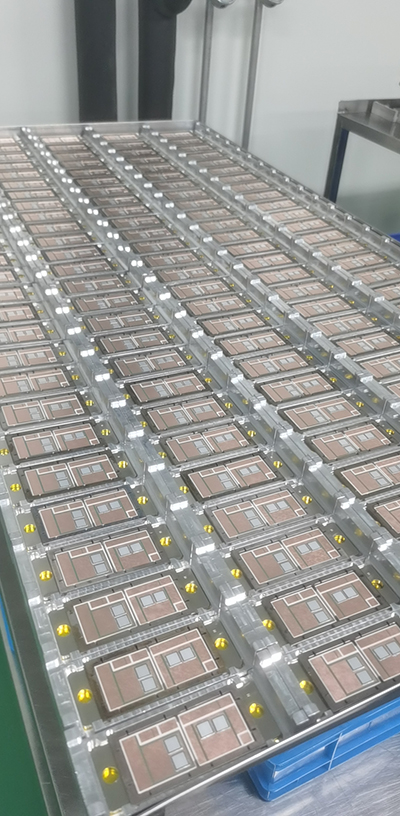Sintering process in the chip of solid-state relays is of significant importance.
The use of sintering process in the chip of solid-state relays is of significant importance, primarily for the following reasons:
Product Quality and Reliability
The sintering process ensures high-quality and reliable chips. Through high-temperature sintering, the internal materials of the chip fuse effectively, forming a robust structure. This enhances the relay's resistance to vibration and impact, thereby improving stability and lifespan.
Electrical Performance
The sintering process contributes to consistent electrical performance within the chip. By controlling temperature and time during sintering, electronic components inside the chip can be evenly distributed, reducing variations in parameters such as resistance and capacitance. This improves the electrical performance of the relay, ensuring it operates reliably under various conditions.
Thermal Performance
Solid-state relays may generate heat during operation, and the sintering process helps enhance the chip's heat dissipation capabilities. This is crucial for the stability and reliability of the relay, especially during high-load and high-frequency operations.
Environmental Protection and Energy Efficiency
Sintering processes typically involve environmentally friendly, low-pollution techniques at high temperatures. Compared to some traditional manufacturing processes, sintering has a lower environmental impact. Additionally, improving the chip's electrical and thermal performance can reduce energy consumption, contributing to energy efficiency.
Therefore, choosing solid-state relays with chips manufactured using the sintering process ensures high-quality, reliability, and environmental suitability, making them well-suited for various industrial applications.


Transform Your Smart Security and Doorbell Solutions with Our Advanced Millimeter-Wave Radar Module
We are excited to introduce our latest innovation in smart technology – the Low Power Short Range Millimeter-Wave Radar Module, designed to revolutionize your smart security and doorbell solutions.
Read More
What are the main differences between MOVs and Spark Gaps in SPDs?
An effective surge protection strategy often combines the use of both MOVs and spark gaps, along with other protective devices, to provide comprehensive protection against different levels of power surges.
Read More
Rotating Diode vs. Standard Recovery Diode: Key Difference and Application
A rotating diode is a special type of rectifier diode used in the brushless excitation system of synchronous generators (alternators).
Read More
Discover the Greegoo GB Series Fast Recovery Diodes: The Ideal Choice for High-Performance Power Electronics
Unleash the future of power electronics with the Greegoo GB Series—where performance, precision, and flexibility converge.
Read More













